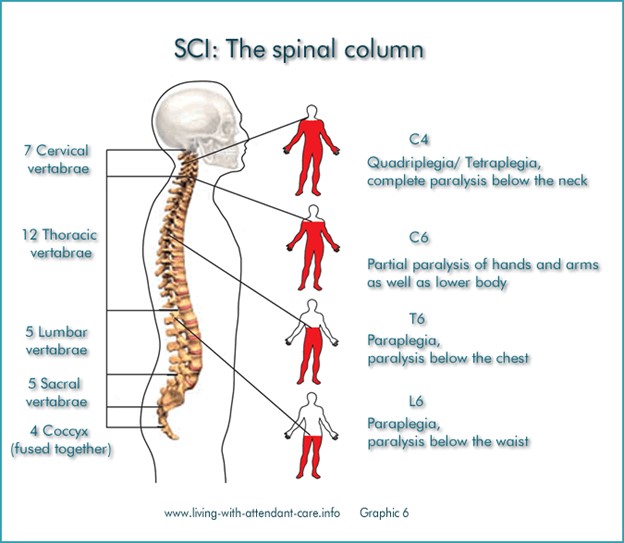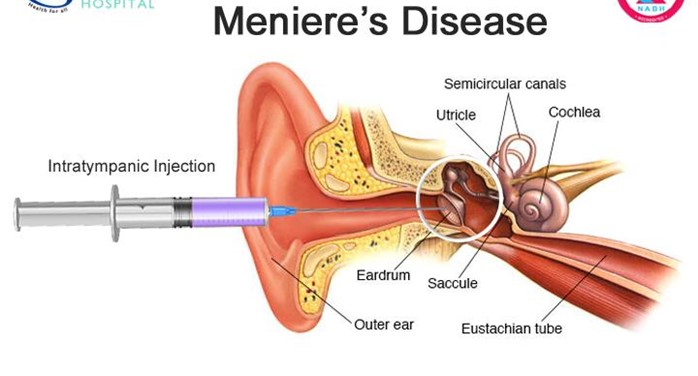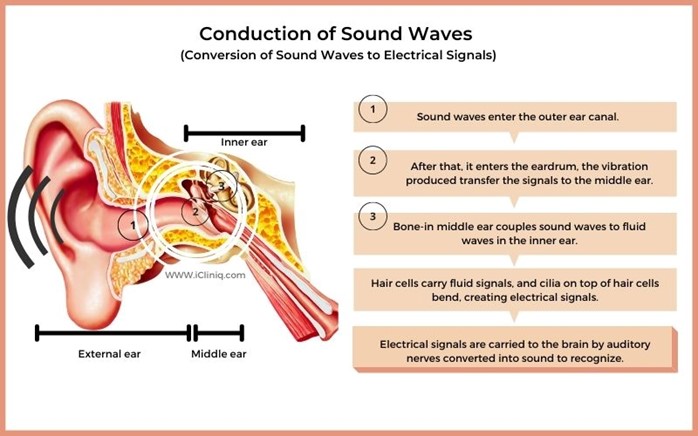A nurse is caring for a client who has a complete spinal cord injury. Based on the nurse's understanding about the degree of this type of injury, what can the nurse expect will be the client's level of function?
The client will need 24-hour a day care.
The client will be able to assist with transfer and perform self-care.
The client will be able to roll over independently.
The client will be able to drive an electric wheelchair.
The Correct Answer is A
Choice A Reason: This is the correct choice because a complete spinal cord injury is a condition where there is no motor or sensory function below the level of injury. The client will have paralysis of all four limbs (quadriplegia) and loss of bladder, bowel, and sexual function. The client will also have impaired thermoregulation, breathing, and blood pressure. The client will need 24-hour a day care to assist with mobility, hygiene, elimination, nutrition, and prevention of complications.
Choice B) Reason: This is incorrect because a client who is able to assist with transfer and perform self-care has a partial spinal cord injury, not a complete one. A partial spinal cord injury is a condition where there is some motor or sensory function below the level of injury. The degree of impairment depends on the extent and location of the damage.
Choice C Reason: This is incorrect because a client who is able to roll over independently has a lower spinal cord injury, not a complete one. A lower spinal cord injury is a condition where there is damage to the lumbar or sacral segments of the spinal cord. The client will have paralysis of the lower limbs (paraplegia) and some loss of bladder, bowel, and sexual function. The client will still have some control over the upper limbs and trunk.
Choice D Reason: This is incorrect because a client who is able to drive an electric wheelchair has an upper spinal cord injury, not a complete one. An upper spinal cord injury is a condition where there is damage to the cervical or thoracic segments of the spinal cord. The client will have paralysis of all four limbs (quadriplegia) and loss of bladder, bowel, and sexual function. However, the client may still have some movement or sensation in the shoulders, arms, or hands.

Nursing Test Bank
Naxlex Comprehensive Predictor Exams
Related Questions
Correct Answer is ["A","D","E"]
Explanation
Choice A reason: This is correct because avoiding swimming underwater can help prevent the worsening of Meniere's disease. Meniere's disease is a disorder of the inner ear that causes episodes of vertigo, tinnitus, hearing loss, and fullness in the ear. Swimming underwater can increase pressure in the ear and trigger an attack. The nurse should advise the client to avoid activities that involve changes in altitude or pressure, such as flying, diving, or climbing.
Choice B reason: This is incorrect because wearing earphones when in crowded places can worsen Meniere's disease. Earphones can increase noise exposure and damage hearing, which is already impaired by Meniere's disease. The nurse should advise the client to avoid loud noises and use hearing aids if needed.
Choice C reason: This is incorrect because keeping eyes open during an acute attack can increase vertigo and nausea. Vertigo is a sensation of spinning or moving when still, which can be caused by Meniere's disease. Keeping eyes open can make vertigo worse by creating a visual mismatch with vestibular signals from the inner ear. The nurse should advise the client to close their eyes or focus on a stationary object during an attack.
Choice D reason: This is correct because sitting or lying down if whirling occurs can help prevent falls or injuries due to vertigo. Whirling is another term for vertigo, which can affect balance and coordination. Sitting or lying down can reduce movement and stabilize posture during an attack. The nurse should advise
the client to avoid driving or operating machinery when experiencing vertigo.
Choice E reason: This is correct because we do not know the exact cause of Meniere's disease. Meniere's disease is thought to be related to abnormal fluid balance or pressure in the inner ear, but what triggers this condition is unknown. The nurse should educate the client about possible risk factors, such as genetics, infections, allergies, autoimmune disorders, or head trauma, but also acknowledge the uncertainty and variability of the disease.
Choice F reason: This is incorrect because damage to the ear from excess noise is not the cause of Meniere's disease. Damage to the ear from excess noise can cause noise-induced hearing loss, which is a type of sensorineural hearing loss that affects the cochlea or the auditory nerve. Meniere's disease is a type of mixed hearing loss that affects both the cochlea and the middle ear. The nurse should not confuse or misinform the client about the cause of their condition.

Correct Answer is C
Explanation
Choice A reason: This is incorrect because using sign language when communicating with the client is not an appropriate action for the nurse to take. Sign language is a form of communication that uses hand gestures, facial expressions, and body movements. It is not a universal language and requires training and practice. The nurse should not assume that the client knows or prefers sign language unless they have indicated so.
Choice B reason: This is incorrect because speaking loudly and into the client's good ear is not an appropriate action for the nurse to take. Speaking loudly can distort the sound quality and cause discomfort or irritation to the client. Speaking into the client's good ear can also create a sense of imbalance and isolation. The nurse should speak at a normal volume and tone, and face the client directly.
Choice C reason: This is the correct answer because speaking directly to the client in a normal, clear voice is an appropriate action for the nurse to take. Speaking directly to the client can help them see the nurse's mouth movements and facial expressions, which can enhance understanding and communication. Speaking in a normal, clear voice can help convey the message clearly and respectfully.
Choice D reason: This is incorrect because sitting by the client's side and speaking very slowly is not an appropriate action for the nurse to take. Sitting by the client's side can make it difficult for them to see the nurse's face and hear their voice. Speaking very slowly can also make the message unclear and patronizing. The nurse should sit in front of the client and speak at a normal pace.

Whether you are a student looking to ace your exams or a practicing nurse seeking to enhance your expertise , our nursing education contents will empower you with the confidence and competence to make a difference in the lives of patients and become a respected leader in the healthcare field.
Visit Naxlex, invest in your future and unlock endless possibilities with our unparalleled nursing education contents today
Report Wrong Answer on the Current Question
Do you disagree with the answer? If yes, what is your expected answer? Explain.
Kindly be descriptive with the issue you are facing.
